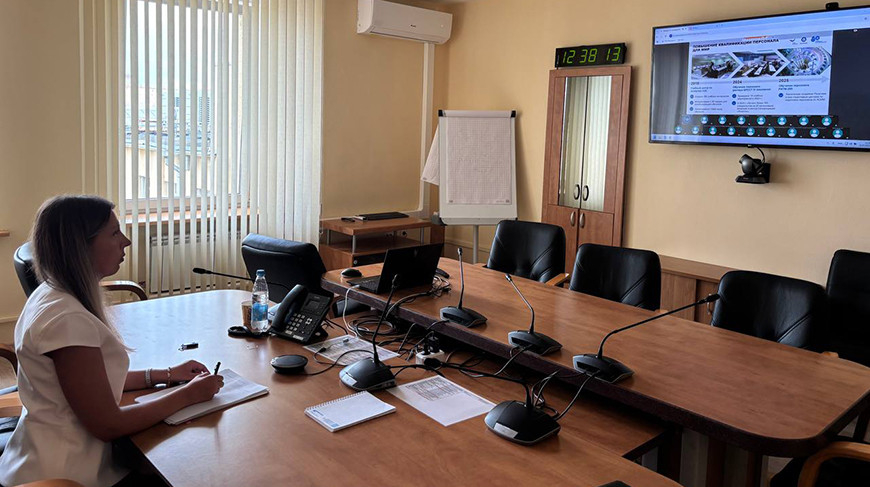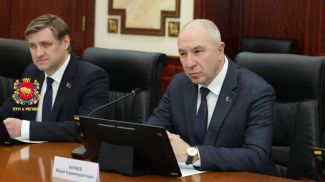
Photo courtesy of the Energy Ministry
Minsk, 23 July (BELTA) – Belarus has developed its nuclear infrastructure in line with global best practices and through close cooperation with the IAEA, Olga Kozlovich, Head of the International Cooperation, Personnel Training, and Information Support Department at the Nuclear Energy Department of the Energy Ministry, said during a joint IAEA and CIS webinar on establishing national nuclear infrastructures, BelTA has learned.
“At every stage of implementing Belarus’ national nuclear energy program, from infrastructure development to nuclear safety, our country has actively collaborated with the IAEA through technical cooperation projects and assessment missions. The agency has provided technical and expert support, assisting in personnel training, strengthening nuclear and radiation safety, managing radioactive waste and spent nuclear fuel, promoting safety culture, and other key areas,” the ministry representative said.
From 2012 to 2022, Belarus successfully completed critical IAEA missions recommended for first-time nuclear power plant builders. These included assessments of nuclear energy infrastructure, regulatory frameworks for nuclear and radiation safety, site evaluation, emergency preparedness and response, nuclear material accounting and control, and operational safety reviews of nuclear power plants. “Our country has incorporated the IAEA’s recommendations into national action plans, ensuring alignment with international safety standards and achieving high levels of regulatory compliance,” Olga Kozlovich added.
She highlighted extensive efforts in personnel training, retraining, and upskilling, involving leading Belarusian universities such as BSU, BSTU, BSUIR, and the Sakharov International State Environmental Institute, as well as partnerships with Russian educational institutions, including Rosatom Technical Academy, the Obninsk Institute for Nuclear Power Engineering, and Ivanovo State Power University. Belarusian nuclear specialists regularly train at Russian nuclear power plants and participate in IAEA seminars, scientific visits, and training programs. Since 2014, the BelNPP has implemented three long-term IAEA cooperation programs, acquiring educational materials and training software. “A robust national personnel training system has been established in Belarus, meeting modern demands and ensuring the nuclear power sector is staffed with highly qualified specialists for safe, reliable, and efficient plant operation,” Olga Kozlovich said.













